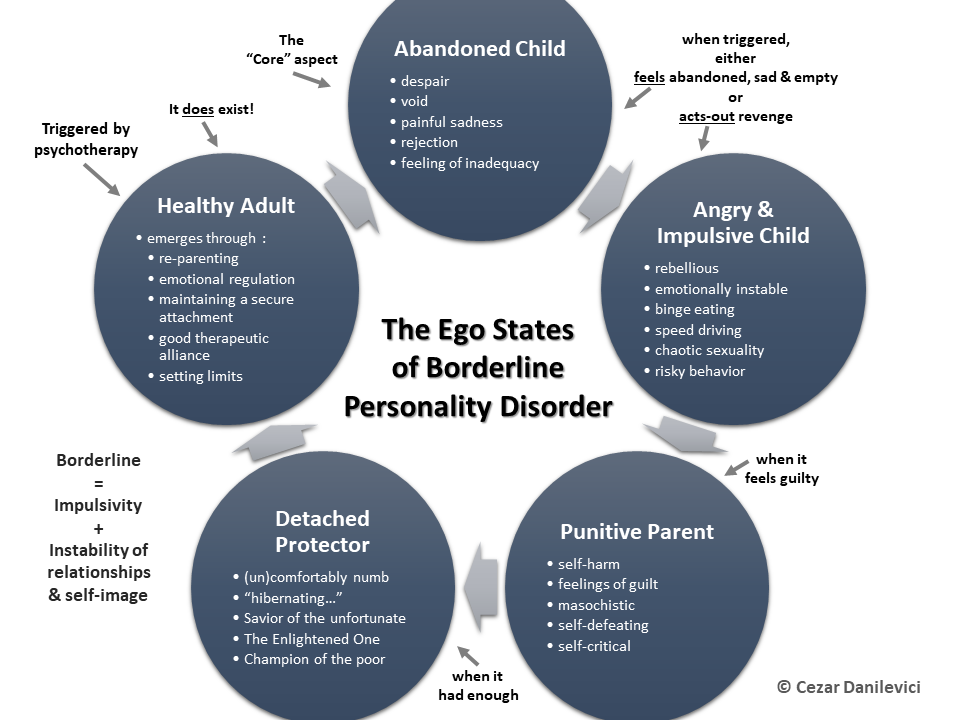Control your emotions or be consumed by them.
The general presentation of someone who has issues with anger is the following: they enter your office, they sit on the (arm)chair and declare simply that they have a problem with anger management. And then, they let you solve their problem, that is, they let you work for them. Just as simple as that. Frequently, they start to look blank at you, often with a “poker face”. Sometimes they come to you because the family/partner pushed them, although there are cases when they come because they saw themselves that they need help. By saying this, I raise your awareness about their motivation: they might come to you out of inner or outer locus of control.
As a psychiatrist, I can’t avoid the reflex of excluding a psychiatric disorder, and you should contemplate this as well. Most people with anger issues suffer from a borderline or impulsive personality disorder (technically, the emotional-instable psychopathy). In practice, this is the most frequent and it involves difficulty regulating anger. The bad news is that this personality disorder is likely to require several therapy sessions and you are likely to “lose” the client in the process (they will leave) unless they fall in love with you (which is also something to pay attention to, because being impulsive sends a message of power and seduction and many people respond positively to this). Then, there are several other disorders: the client can suffer from a bipolar disorder in maniacal phase (a quality anamnesis/history of the main complaint will clarify you), from a difficulty mastering their impulses that is not linked to a personality disorder, can suffer from other personality disorders like the histrionic disorder for instance (they go truly hysterical) and you can even suspect an epilepsy with behavioral features. If you are not a psychiatrist, use common-sense: if something feels wrong, refer the client to a psychiatric evaluation. Following this, the client might get even a treatment (generally a mood stabilizer or antidepressant), which could help the general situation, as it is always more effective to use medication + psychotherapy than using psychotherapy alone.
Now, returning to the client watching you impassively from his chair, the first reflex you must have is to ask yourself if you’re stupid (naïve) or not. The client just told you (s)he’s having anger issues, but do you really believe him/her? Are you sure it’s anger?
Anger typically deals with stuff happening in the present of the client and generally involves a feeling of unfairness; the rights of the client have not been respected and the client is mad about this. However, the client might tell you something like this: “I am angry because my child keeps doing this thing over and over again and I am fed up”. The client sends you to the past while projecting a dark future, as he/she expects something bad to keep happening in the future. It begins to feel as some sort of hopelessness, helplessness regarding his/her situation and even worthlessness of everything he/she has already tried. Are you sure it’s not sadness? Because this is truly the classical depression triad (hopelessness, helplessness, worthlessness). Another example: a child is hitting his parents and screams many times while the parents tell you with the biggest conviction in the world that the child has anger issues. Are you really sure? Remember the rule that anger and anxiety are the two sides of the same coin, and when fearful animals are cornered, they attack you out of fear (the Russians themselves have started a war for “preventive reasons”, for fear of an invasion of the West, so you could keep this as a good example of anxiety/fear walking in anger disguise).
So, you establish that you’re dealing with anger. Good. Now you need to ask yourself another common-sense question: is the anger justified/reasonable or not? Why this? Because anger is a normal emotion, just like fear or sadness or joy, and a normal functioning human being needs anger so as to negotiate everyday life. For instance, anger can be an effective force behind change (you do stuff), because it provides you motivation, resilience and energy. So, be vigilant, don’t stop a good process because you’re afraid of anger! (by the way, if you dislike anger, you should ask yourself why and enter supervision so as to master this problem yourself). Now, returning to anger, if the client, a wife, tells you this: “I am angry because my husband is cheating me repeatedly”, are you going to extinguish this anger (and transform the client in a “vegetable”) or are you going to congratulate the client because she has a healthy self-esteem that tells her that her dignity is not respected? So, as a rule, before working with anger, ask yourself why anger appeared in the client’s life in the first place and if this anger actually helps! It may be a way to exhibit freedom or make a statement regarding a liberation from some sort of captivity!
So, you established that you’re dealing with anger and the anger is not adaptive, it’s not helping in any way. Good. The next step is to be more precise: what exactly the client does not like about their anger? Is anger exploding at the wrong time? Is the anger too intense? Because clients, if questioned correctly, will not tell you that they want to make anger completely disappear, but mostly, they will have issues with the bad timing, the bad audience (at the workplace, for instance) or the excessive intensity (it’s one thing to shout and another thing to break chairs and tables… or beat the partner). So, you need to carefully negotiate what exactly the client needs and have an idea about the “ideal image of anger”: when, how strong, in what circumstances, etc.
Is there anger without aggressiveness? I bet you didn’t think about that. Well, there is. People frequently associate anger with violence, that is, they associate the emotion with the behavior. But the fact that you are angry does not mean you have to be violent or alter significantly your behavior. You can keep your anger in you, be under inner pressure, yet bend your distress or your tension so as to use it constructively, without losing control unless you choose to do so. Think about ambition; it often comes from anger which is used in a controlled way so as to get where you want. Or, think about the many professionals in the psy field who are annoyed daily in many ways, yet they achieved mastery of anger. You can speak to your client about this; maybe this image might interest him/her as an ideal of anger management…
Now, practically, there are many techniques to manage anger, and most of them come from cognitive-behavioral therapy (CBT). I tend to be rather psychodynamic and enjoy discussing the reasons of anger with my clients (I go in the past and identify the client’s projections and who are they really mad at), but the techniques of relaxation are truly important here, even if they involve “taming” or “training” the patient to automatically do certain things.
When I get angry myself, which is more frequently than most might expect, I generally use imagery (actually the CBT technique of opposing an alternative thought) and ask myself if the current situation will be equally important 5 years from now; if the situation is irrelevant, I don’t care and the anger is no longer justified. Another thing that is typical in my case is that my self-esteem is poorly linked to the exterior, so I basically don’t care what the others think about me; this also helps me to calm down (I have a mostly internalized locus of control). There are however situations when I am truly angry, especially when my values are not respected; in these situations I get out of the room so as to avoid being physically aggressive (most people do this without prior psy training). Another method, which is kinda funny, is when I get angry in a dispute inside the family: I simply lie down, horizontally, on a bed or a sofa. It has been proved that you can’t effectively quarrel with someone if you lie down horizontally, because you feel the need to stand up and fight. Try and you will see that you simply can’t get mad while looking at someone from an inferior position (don’t use a chair to sit, use something horizontal). Finally, so as to give a “normal” technique (so as to seem professional), the best technique I suggest to my patients/clients is to count to 10 before doing anything (shout, hit, break, kill, etc.). Counting to 10 involves counting at the pace of 1 number (cipher) per second, so this involves basically delaying the angry reaction by 10 seconds. In general, when we’re angry, we act-out almost out of reflex, as our ancient part of our brain takes the lead. This period of 10 seconds generally allows the neocortex (the new part of the brain or the evolved part that is not so present in animals) to emit at least one decent thought. And if you begin to think, you generally do not act, because you begin to find/gather reasons for not being aggressive. So yes, when you’re truly angry, count to 10 during 10 seconds.
I hope this article about anger helps.
—
Borderline Personality Infographic:


